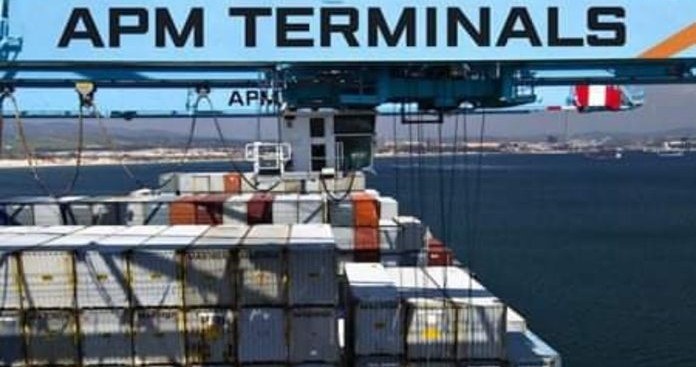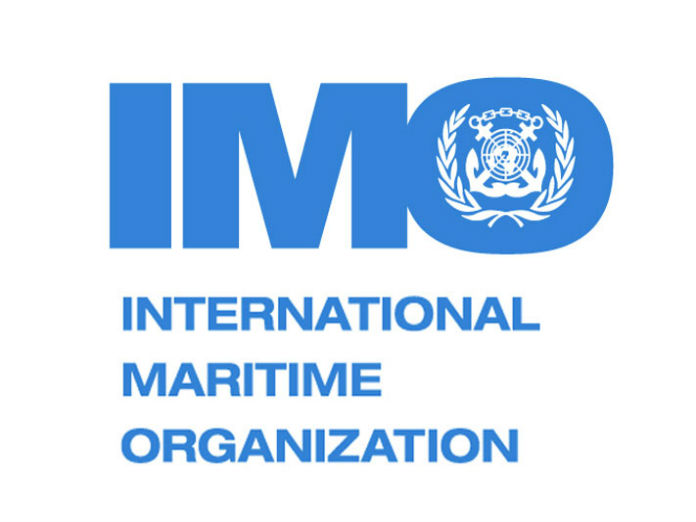An impact assessment study conducted by a consulting firm, Quantifying Business Impacts on Society (QBIS) in 2018, shows that the operation of APM Terminals in Nigeria created a total turnover of around USD610 million (N186.05 billion) per year to the Nigerian economy from 2013 to 2016.
The study titled “Nigerian Trade Stimulator – How APM Terminals in Nigeria have impacted trade, creating jobs and ensuring a sustainable business environment”, was conducted by Mette Dalgliesh Olsen and Thomas Westergaard-Kabelmann.
The main objective of the study was to assess the socio-economic impacts and value-addition of APM Terminals’ operations in Africa’s most populous nation and largest economy. The study focused on APM Terminals’ investments in Nigeria from 2010 to 2016.
The study found that the direct turnover created by APM Terminals from 2013 to 2016 created around USD44 million (N13.42 billion) of annual turnover in companies supplying goods and services to APM Terminals and around USD352 million (N107.36 billion) of annual turnover in companies supplying consumption goods to the employees of APM Terminals and its suppliers. This means that APM Terminals’ business activities created a total turnover of around USD610 million ((N186.05 billion) per year to the Nigerian economy in the period from 2013 to 2016.
The study also reveals that the operation of APM Terminals has impacted positively on trade in Nigeria, leading to an increase in the country’s manufactured export by up to 15 per cent, corresponding to around USD0.5 billion (N152.5 billion) in the period from 2006 to 2009.
Customer expectation
In spite of the huge investment profile of APM Terminals which has impacted positively on Nigeria’s volume of trade, port users, like the proverbial ‘Oliver Twist’ have continued to ask for more, lamenting that the container port operator needs to do more in container transfer aspect.
In the words of the Vice President of the Association of Nigerian Licensed Customs Agents (ANLCA), Kayode Farinto, “APM Terminals has not done enough in the area of container stemming to bonded terminals.
“As I am talking to you, six of my containers are still lying down inside APM Terminals despite being stemmed to a bonded terminal for Customs inspection by the terminal operator. For the number of days that my containers have continued to lie inside APM Terminals unattended to, who bears the accruing storage charges?
“This is one of the issues that will keep bedeviling port operations in Nigeria if the appropriate authorities don’t wake up from their slumber. APM Terminals has already informed me that my six containers have already been stemmed to a bonded terminal for Customs examination, but why has the containers not been moved? Obviously, somebody somewhere is waiting for me to activate panic mode, and part with some money before they will be moved.
“Ordinarily, I am not supposed to pay for the transfer of my cargoes to a bonded terminal from APM Terminal because I didn’t request that my containers should be transferred. It was APM Terminals that said, due to whatever reasons, my containers alongside a set of containers should be moved to a bonded terminal for Customs inspection.
“Despite informing me that my six containers will be transferred to a bonded terminal for weeks now, the containers are still lying down there inside APM Terminals because somebody somewhere wants me to come and settle them or request to pay transfer charges. Don’t forget that the extra days the containers spend inside the APM Terminals are levied under storage charges. Is it my fault that my containers have not been transferred as requested by APM Terminals? Is anybody expecting me to come and pay transfer charges when I didn’t ask or request for any container transfer? This and many more issues are areas we expect APM Terminals to buckle up and live above board. Yes, we know they have invested so much in port operation, but that should reflect in the way they deal with their customers.”
(Nigerian Tribune)




